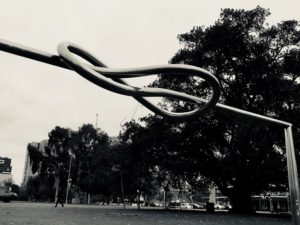Hello! My name is Wen-Chia Claire Chang. I am an assistant professor in the Policy, Curriculum, and Leadership Academic Group at the National Institute of Education/Nanyang Technological University in Singapore. I obtained my Ph.D. in Educational Research, Measurement, and Evaluation from Boston College in the United States. I had a B.A. in Philosophy from Fu-Jen Catholic University in Taiwan and an M.A. in Communication Studies from Ball State University in the United States. My multidisciplinary research focuses on equity issues in measurement, evaluation, and assessment practices in the context of teaching and learning to teach diverse student populations.
My work has always revolved around education, be it in the field of international development or research on teaching and teacher education. For four years (2006-2010), I was a program officer with Education Development Center (EDC) Bangkok Thailand office. I managed, designed, and implemented evaluations of programs addressing issues on poverty, education, public health, and migration in the Asia Pacific region. As a program evaluator, I worked closely with a wide range of stakeholders including multinational corporations, community-based organizations, state and local government, international development agencies, communities, schools, educators, parents, and children. My evaluation experience working with the marginalized communities in Southeast Asia paved the way for my scholarly commitment to advancing equity and social justice within and beyond classroom walls.
 During my time in the Lynch School of Education and Human Development at Boston College, my exposure to critical race theory and intersectionality (CRT) and collaboration with nine teacher educators/scholars in the Teacher Education and Education Reform (TEER) research group had a profound impact on me as a person, educator, and scholar. The CRT lens allows me to understand better and examine systemic racism and inequities in teacher education policy, research, and practice. Most importantly, critical perspectives offer a reflection tool to look inward and reflect on how internalized racism manifested in my assumptions and practices can perpetuate the inequitable status quo and how I can do better. At the same time, working closely with nine teacher educators to critically examine teacher education accountability initiatives in the U.S. context shows me firsthand how true collaboration can create meaningful changes, large or small, in policy and practices. Critical inquiries and collaborative scholarship inspire me to step on this academic journey, and I am aspired to facilitate others’ journeys through such values and actions.
During my time in the Lynch School of Education and Human Development at Boston College, my exposure to critical race theory and intersectionality (CRT) and collaboration with nine teacher educators/scholars in the Teacher Education and Education Reform (TEER) research group had a profound impact on me as a person, educator, and scholar. The CRT lens allows me to understand better and examine systemic racism and inequities in teacher education policy, research, and practice. Most importantly, critical perspectives offer a reflection tool to look inward and reflect on how internalized racism manifested in my assumptions and practices can perpetuate the inequitable status quo and how I can do better. At the same time, working closely with nine teacher educators to critically examine teacher education accountability initiatives in the U.S. context shows me firsthand how true collaboration can create meaningful changes, large or small, in policy and practices. Critical inquiries and collaborative scholarship inspire me to step on this academic journey, and I am aspired to facilitate others’ journeys through such values and actions.
Guided by the critical traditions, I am also a researcher trained in quantitative methodology/measurement theories, which are often presumed to produce objective and value-neutral knowledge and historically are used to weaponize against racialized minorities. While I believe that quantitative methods and measurement work can serve to advance equity and social justice, not only do the two fields rarely intersect, but they also rest on different ontological and epistemological principles. These struggles and challenges lead to my recent and ongoing research to understand what it means and takes to attend to equity and culture issues in quantitative and measurement work.

As a scholar born and raised in Taiwan, I returned to the Asia Pacific region in 2018 to grow my scholarship in contexts wherein the historical foundations, political contexts and structures, and social organizations are different from the United States where I spent a decade previously. As a critical scholar, my ongoing research also focuses on how teaching and learning to teach with a commitment to equity and/or social justice can be possible and enacted in highly centralized, hierarchical education systems in Asian contexts.